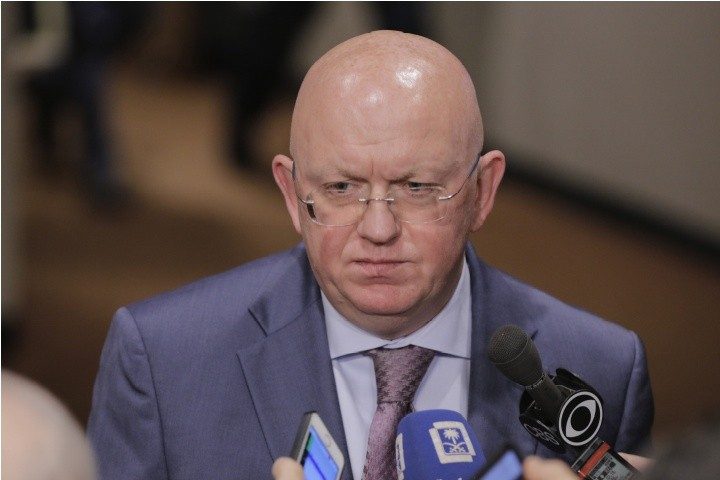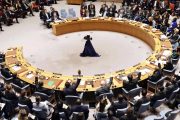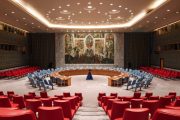
Vasily Nebenzia, a representative of the Russian Federation to the United Nations, accused western countries of a “Russophobic information campaign” and of trying to build “a cyber totalitarianism” against his country — warning of the danger of a “cyber confrontation.”
Nebenzia spoke Monday at a UN Security Council meeting and claimed the West has sought to shut down Russia’s “alternative views.”
“States that call themselves a ‘community of democracies’ in fact are building a cyber totalitarianism,” Nebenzia said.
He also spoke out against Ukraine for allowing a volunteer cyber army to fight back against Russian propaganda as well as targeting Russian and Belarusian facilities.
Per one Ukrainian official, the cyber army is composed of developers, cyber specialists, designers, copywriters, and marketers.
“Colleagues, you are creating uncontrollable cyber troops that will master their skills in Ukraine by attacking Russia, but will not stop at that,” Nebenzia said.
The Russian representative also accused the western powers of “militarizing digital domain,” comparing it to a nuclear war.
“Once again, I call you to think of the danger of dragging the world into a cyber confrontation that is no less dangerous than [the] usage of WMDs,” Nebenzia said.
He demanded that the West “demilitarize information space,” adding that Russia will respond to any cyberattacks.
The United States and other countries have condemned Russia for cyberattacks against Ukraine. Earlier this month, the United States and the European Union claimed Russia was responsible for an attack on Ukraine’s satellite network in February.
In a statement, the European Council said the hack took place an hour before the invasion and caused major communication outages, disrupting several public authorities and businesses.
“This unacceptable cyberattack is yet another example of Russia’s continued pattern of irresponsible behaviour in cyberspace, which also formed an integral part of its illegal and unjustified invasion of Ukraine,” the European Council said.
U.S. Ambassador to the UN Linda Thomas-Greenfield said the Russian government “continues to shut down, restrict and degrade internet connectivity, censor content, spread disinformation online, and intimidate and arrest journalists for reporting the truth about its invasion.”
On Wednesday, the United States is set to close the last avenue for Russia to pay its billions in debt back to international investors. Through the notification, the Treasury Department said it does not plan to renew the license that allowed Russia to pay its debt holders through American banks.
Since the first rounds of sanctions, the Treasury Department has given banks a license to process any dollar-denominated bond payments from Russia. That window expires at midnight May 25.
AP notes:
Without the license to use U.S. banks to pay its debts, Russia would have no ability to repay its international bond investors. The Kremlin has been using JPMorgan Chase and Citigroup as its conduits to pay its obligations.
Jay Auslander, a prominent sovereign debt lawyer who previously litigated other debt crises like the one in Argentina, said at this point most of the institutional investors in Russian debts have likely sold their holdings, knowing this deadline is coming. Those who are still holding the debts are either distressed debt investors or those willing to wait to litigate it out over the next few years.…
The Kremlin appears to have foreseen the likelihood that the U.S. would not allow Russia to keep paying on its bonds. The Russian Finance Ministry prepaid two bonds on Friday that were due this month to get ahead of the May 25 deadline.
Russia has not defaulted on its debts since the 1917 Bolshevik Revolution in which communists supplanted the Russian Empire with the Soviet Union.
In the late 1990s, Russia defaulted on its domestic debts, but was able to bounce back with the help of international aid. Because Russia has been cut off from international markets for months now and investors have been expecting a default, observers do not believe a default at this point would have a major impact on global financial markets.
Following a default, Russia might turn to American, British, or European courts to argue that circumstances beyond its control forced the default — a legal concept known as force majeure.
But this effort to restore its standing in global financial markets may be difficult to win considering that the cause of the isolation is Russia’s invasion of Ukraine, which the western nations have been unanimous in condemning.




